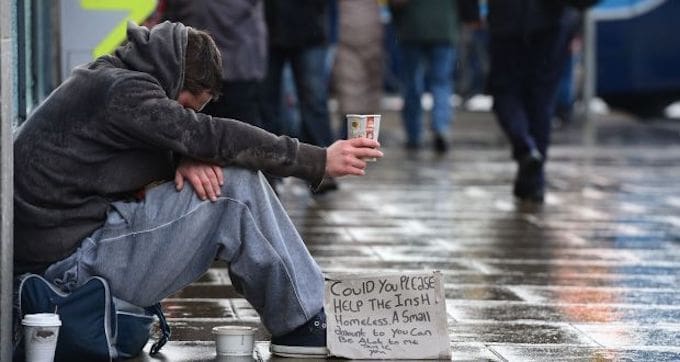Up to €3 billion a year in higher taxes on the wealthy and on business should be introduced to fund social welfare increases, a universal basic income and other measures to combat poverty and inequality, Social Justice Ireland has said in its annual Guide to a Fairer Society.
In a detailed, 300-page manifesto, which the group updates and publishes every year, Social Justice Ireland says Ireland’s current economic model is “no longer fit for purpose”.
The report, written by a team headed by Fr Sean Healy, is being released today.
“There is a need for a new model,” it argues, “one that acknowledges the need for a just society in which human rights are guaranteed, human dignity is respected, human development is facilitated, and the environment is protected.
“Social Justice Ireland has developed such a model. It involves working to achieve five key outcomes simultaneously – (a) a vibrant economy; (b) decent services and infrastructure; (c) just taxation; (d) real participation; and (e) sustainability.”
It says that while a new model for society is “eminently deliverable … it will cost money”. It says Ireland’s “current model of revenue generation does not provide the resources necessary to deliver the public services and social infrastructure that Ireland needs in order to be compared favourably with our peer countries of the EU-15.”
Higher revenues from taxation would enable higher levels of public spending, it argues, to enable the State to vindicate what it regards as seven basic rights: “sufficient income to live life with dignity; meaningful work; appropriate accommodation; relevant education; essential healthcare; cultural respect; and real participation in society.”
These rights, it says, should be recognised by the State, which would require greater public expenditure to fund a broader provision of services.
The strong economic growth of recent years offers an opportunity to increase expenditure, rather than to reduce taxes, it says.
“Social Justice Ireland believes that Ireland should aim to collect an additional €2.5 billion-€3 billion per annum in taxation,” the report says.
“This calculation is based on a more realistic estimation of Ireland’s actual economic growth figures, as well as on per capita taxation numbers, population growth, and the estimated gap between Ireland’s actual tax take and the tax take needed if Ireland is to provide a level of public services consistent with the expectations of a developed, western European democracy.”
Corporation tax
Among the measures it proposes to fund the additional spending is increasing the corporation tax rate to 17.5 per cent, with a “minimum effective rate” of 10 per cent, a new €500 annual charge on second homes and a windfall tax of 80 per cent on profits from rezoning decisions.
Revenue from the new taxes would enable the Government to fund “a five-year plan for eradicating poverty in Ireland”, the group says.
“Poverty needs to be addressed as a singular policy issue with a multi-departmental approach if we are to achieve this. Without this kind of commitment, the consequences for the poorest in our society will reverberate down to the next generation,” it says.
“Policy solutions to poverty would include ensuring social welfare payments are set at an adequate level and are indexed, making personal tax credits refundable, introducing a cost of disability payment, and introducing a living wage.”




















